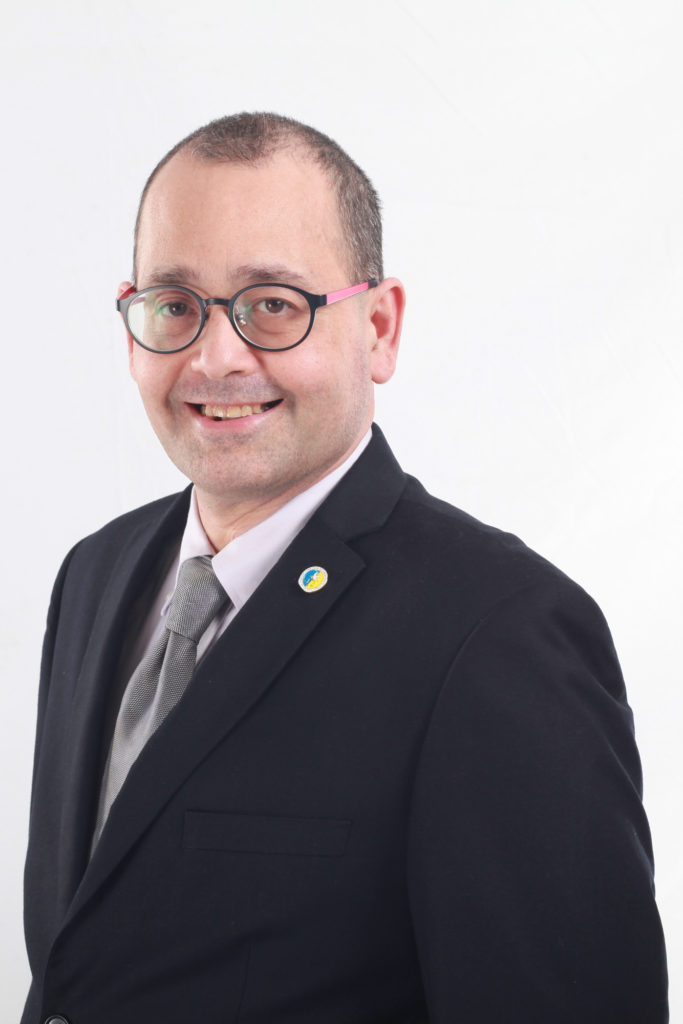Written by KIM G Quilinguing
“Perhaps, when I end my tenure as the Chairperson of the Commission on Human Rights, and when I return to perhaps a teaching role or a mentoring role, I am certain, I will return once more to many of these great works of Philosophy and refresh my mind about the important things that we must confront as a people, as humanity. And I will always return to those important teachings.”
Such were the words of the Commission on Human Rights Chairperson and University of the Philippine alumnus Jose Luis Martin Chito C. Gascon in a video for freshies posted by the UP Diliman Apeiron Core Group on September 28. The group is the official student volunteer arm of the Department of Philosophy.
Early Saturday morning, October 9, Gascon’s brother Miguel shared a post on Facebook which read: “Sa dami mong laban, sa COVID pa tayo natalo.” He was 57.
Gascon graduated with a Bachelor of Arts in Philosophy degree from the University of the Philippines Diliman in 1988. He would also later earn his Bachelor of Laws degree in UP in 1996. Furthering his studies, he would finish a Master of Laws degree at Cambridge in 1997.
In the video for freshies shared by the Apeiron Core Group, Gascon said he found Philosophy as an essential foundational subject. It provides, he said, “an opportunity to affirm one’s principles, as well as the capacity to look wide and long, towards our society, to see how there could be progress, [and] change might happen.”
An active student leader, Gascon was Chair of the UP Student Council from 1985 to 1986. He led his fellow students in active-non-violent protest actions, which contributed to and culminated in the People Power Revolution and the ouster of Marcos in 1986.
Later, Gascon represented the youth as the youngest delegate to the 1986 Constitutional Convention, which prepared the 1987 Philippine Constitution. Afterward, he served as the youngest member of the 8th Congress from 1990 to 1992.
After his studies abroad, he returned to the country and served as Undersecretary of Education from 2002 to 2005. He also worked as a political officer for then-Senator Mar Roxas at the Senate from 2008 to 2010. He was a Board Member of the Bases Conversion and Development Authority from 2010 to 2011. He served as Undersecretary at the Office of the President from 2011 to 2014. Simultaneously, he was part of the government delegation to the United Nations Human Rights Council for the Universal Periodic Review in 2012. After leaving Malacañang, he became a Human Rights Victims Claims Board member from 2014 to 2015. He was appointed Chairperson of the Commission on Human Rights in 2015.
His appointment to the Commission was no surprise. Gascon spent many years advocating for human rights, social justice, and social change. From 1997 to 2002, he was Executive Director of the National Institute for Policy Studies. In 2005, Gascon became the Executive Director of Lawyers League for Liberty (LIBERTAS). This organization aids advocacy groups in electoral reform, transparency in governance, and human rights. In the same year, he would also receive a Democracy and Development Fellowship from Stanford University’s Center for Democracy, Development, and the Rule of Law. In 2007, Gascon became a Fellow at the Reagan-Fascell Democracy Fellowship of the National Endowment for Democracy. From 2008 to 2011, he was the Director-General of the Liberal Party.
Aside from his involvement in civil society, Gascon was active in reconciliation efforts with insurgent groups. He was a member of the Technical Working Group on Power Sharing with the Moro Islamic Liberation Front, an alternate panel member in the peace talks with the MILF. Gascon was also a member of the AdHoc High-Level Working group for the Tripartite Review of the 1996 Final Peace Agreement with the Moro National Liberation Front and the Organization of Islamic Cooperation’s Peace Committee for Southern Philippines.
Gascon was a panel member of peace negotiations with the National Democratic Front between 2001 to 2004. From 2010-2014, he chaired the Government’s Human Rights Monitoring Committee. The Committee monitored the peace process within the Comprehensive Agreement on Respect for Human Rights and International Humanitarian Law framework.

In recent years, Gascon would face challenges as head of the constitutional body, ensuring the promotion, protection, and preservation of human rights enshrined in the Constitution. In an interview on Esquire Philippines in 2017, he remained undaunted by the constant criticism of the CHR by those in halls of power and on social media. The Commission has been very vocal on the rise of extra-judicial killings and human rights violations. “Right now, in a sense, I’m going back to basics. I was moved into action by the human rights violations I saw happening during the dictatorship. And now I have been allowed to serve the people in an institution that is mandated to promote human rights, in a set of circumstances that are not ideal,” he said.
He constantly faced challenges in his advocacy for human rights, social justice, and social change for many years. And yet, he remained optimistic, even telling the Esquire interviewer: “The revolution you aspire for is out there on the horizon. It’s something you never give up on.”
In a recent video shared by the Apeiron Core Group, Gascon advised the new generation of Iskolar ng Bayan to “Find your niche, be as inquisitive, and as useful as you can be. And apply what you learn to society. That’s all that we can do.”
Source: https://up.edu.ph/human-rights-icon-chito-gascon-passes-away/
